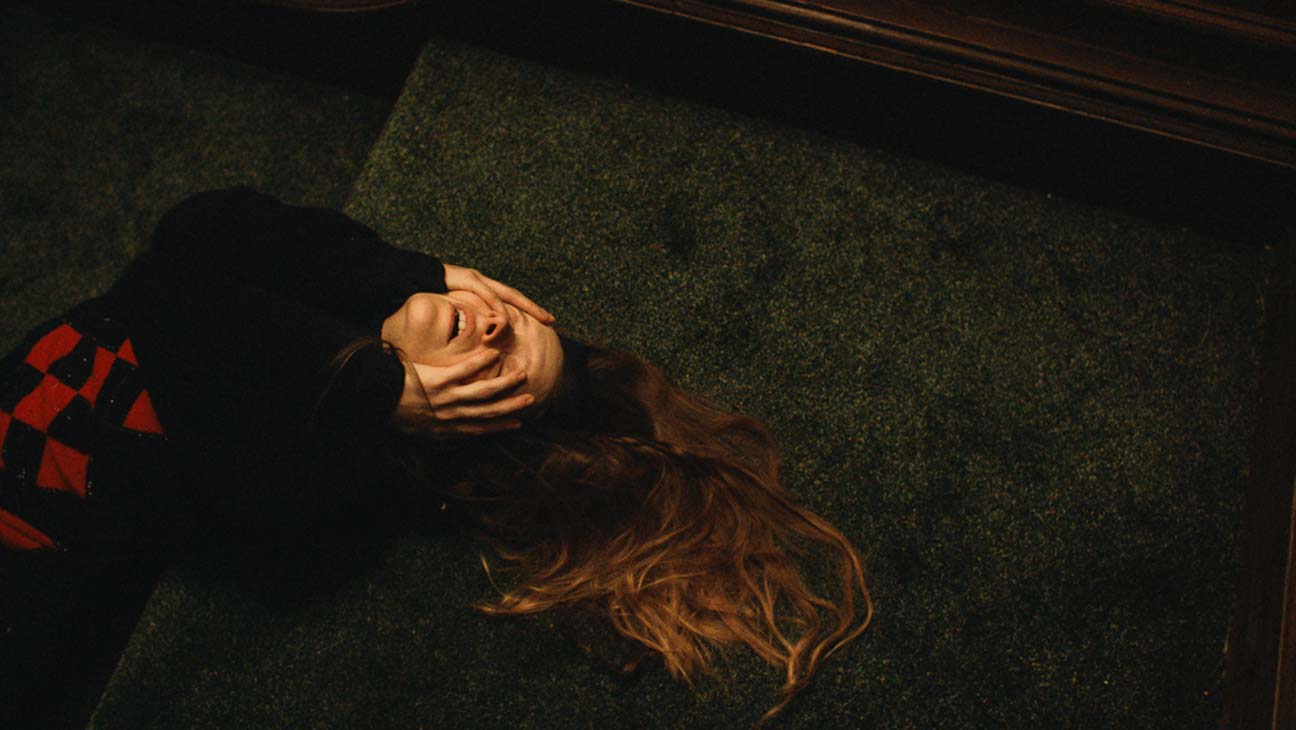
One of the first things we see, or more accurately, hear Maud do is pray. These prayers play a rather large role in Saint Maud, a new horror film that premiered as part of the Toronto International Film Festival‘s Midnight Madness lineup. These prayers let us know right away that Maud cares about her relationship with God and that, as played by relative newcomer Morfydd Clark, she’s fixated on pleasing Him. That relationship is what drives the movie forward — to awfully terrifying results.
As we learn from her morning prayers, Maud is a nurse who was recently sent to a new job working for a retired dancer stricken with a form of spinal lymphoma. The dancer, Amanda (Jennifer Ehle), is different from the timid Maud in just about every way imaginable. She’s loud, sarcastic, smokes constantly, and is deeply angry at the universe. Amanda throws lavish parties with her theatrical friends and carries on a relationship with a sex worker (Lily Frazer), while Maud seems to have no acquaintances and spends her time off by herself. There’s no reason the two would get along—but, shortly after arriving, Maud becomes convinced that God is speaking with her. His message? To save Amanda’s soul, and, strangely, Amanda starts to become convinced that God’s speaking with her too.
This first act of Saint Maud is a fascinating character study that almost doesn’t feel like a horror movie. Ehle and Clark play off each other brilliantly, in a way that constantly makes you wonder which direction their relationship will go. Are they attracted to each other? Trying to outwit one another? And is Maud really hearing the voice of God or is she just in desperate need of a friend? Audiences will never fully be able to forget that they’re watching a horror movie, as there are just enough lingering shots of dark hallways to keep them on their toes. But the film feels deceptively calm until the chilling scene where Amanda confirms that she, too, is hearing the voice of God — a moment that’s almost overwhelming in its sudden intensity.
But that scene starts the second act, which becomes more and more terrifying with each passing moment. As Maud takes greater measures to “save” Amanda’s soul, we’re forced to confront some suspicious questions that lingered in the shadows during the first act. Why does Maud dislike Amanda’s lover, is it jealousy, or some sort of faith-fueled homophobia? Is Amanda being genuine in her newfound faith, or is she manipulating Maud for her own purposes? And, when an old coworker of Maud’s appears and references some sort of unfortunate incident from her previous place of work, we’re forced to ask the biggest question: is Maud actually a credible narrator?
What follows is a hypnotic but distressing thriller about the evils that religion can make us do. This is a movie that lends a certain sense of realism to each of its scary moments, even as (possibly) supernatural elements are introduced. Everything feels uncomfortably real, to the point where the film almost loses its entertainment value. It’s a troubling portrait of fanaticism, with flashes of violence that are brief but truly sadistic and detailed. This is not a movie for the faint of heart or weak of stomach. But its effectiveness is almost undeniable.
All of this is thanks to writer-director Rose Glass, who emerges as a talent to watch. It’s to her credit that the film remains absorbing, even as it becomes punishing and gross. She knows how to control the tone and keep a steady pace, even as she introduces chaos into the narrative. The sound design is also impeccable, and a key to the film’s success. For a film with many gory moments, the absolute best scare is totally off-screen: we only hear a voice, and that’s enough to send shivers down any viewer’s spine. Similarly, well-timed sound effects and Exorcist-esque vocal manipulations are used to maximum effect. And, while I’m not sure the film had to employ as many violent scenes as it did to prove its point, the script is smart in the way it explores religion and turns its themes on its head, using its very last shot as a definitive thesis statement.
Both lead actresses are also wonderful. The titular role is not an easy one; Clark has to be in control of the audience’s opinion of her, and convincingly sell her piousness at all times. It’s a tricky balance that she makes work. And Ehle is an absolute blast, instilling just the right level of camp into the performance as to not totally break the tone. Again, her character has to maintain a level of mystery: is she really hearing the voice of God? Is she trying to seduce Maud? Or just fuck with her? She relishes every line, and absolutely kills her final scene, where all the cards are put on the table.
But make no mistake: Saint Maud isn’t exactly a fun watch. Similar to Robert Eggers’ masterful The Witch, this movie is more dedicated to exploring the world of religion through the lens of a horror movie, and it unearths some pretty disturbing themes in the end. The final twenty minutes are gut wrenching, and there was one violent moment before that which is bound to cause a few walk-outs. But, for those willing to sit through it, Saint Maud delivers. This is a truly horrifying movie about evil that will stay with you long after the credits roll.

